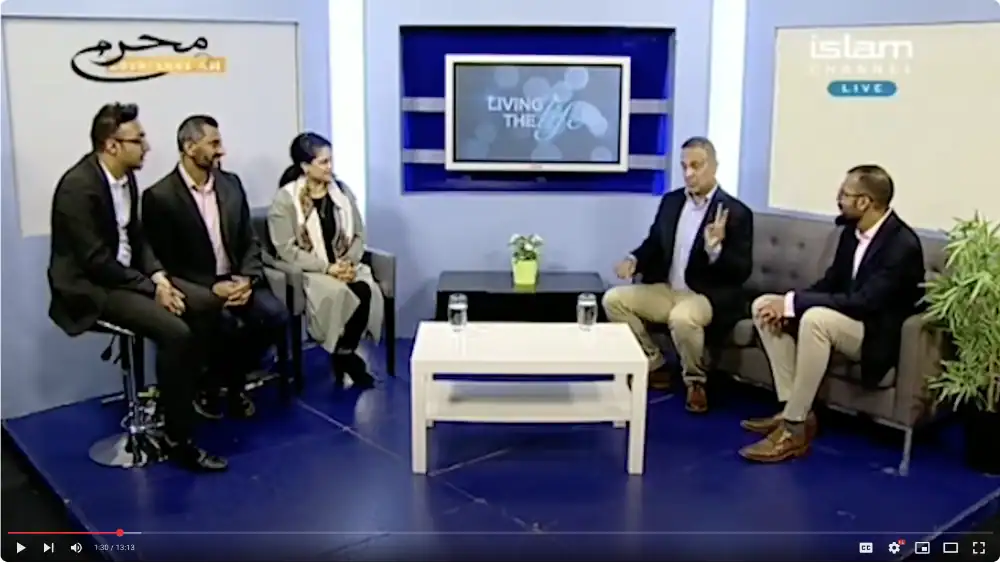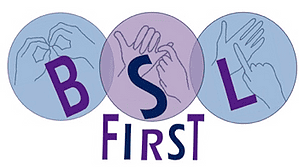BSL Interpreting
Face-to-face and online BSL interpreting service, wherever and whenever you need us.
Book an Interpreter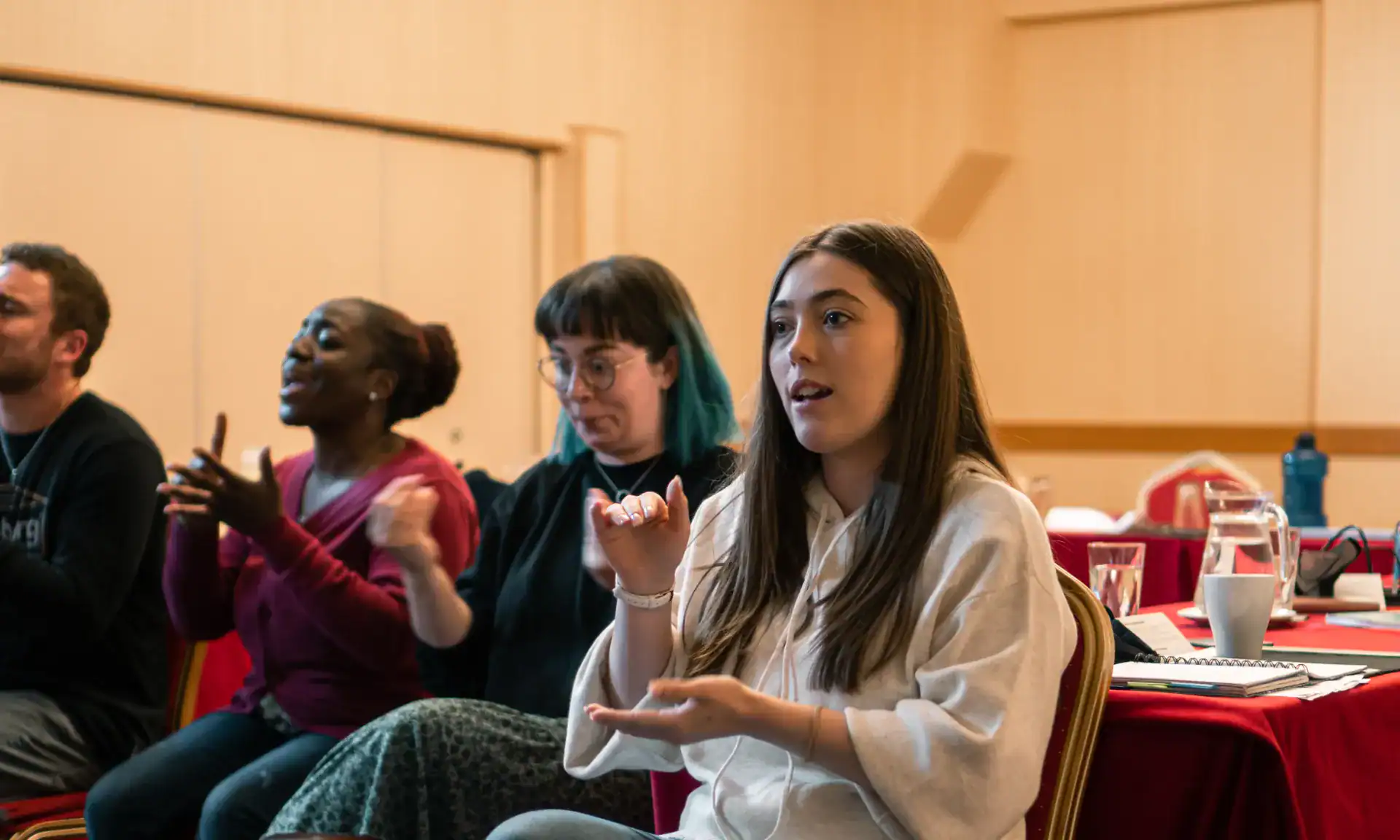
The role of a BSL Interpreter
BSL/English Interpreters translate between British Sign Language (BSL) and spoken English. The role of the BSL/English Interpreter is to facilitate communication between an English speaker and a deaf person whose native language is BSL. Signed language interpreters work mostly in simultaneous mode, even in liaison interpreting situations, although they may also use consecutive mode.
BSL/English Interpreters are required to undertake extensive training at Level 6 of the National Occupational Standards (equivalent to undergraduate level). They are certified and regulated by the National Register of Communication Professionals working with Deaf and Deafblind People (NRCPD), the regulatory body for BSL/English Interpreters (and other communication professionals) in the UK.
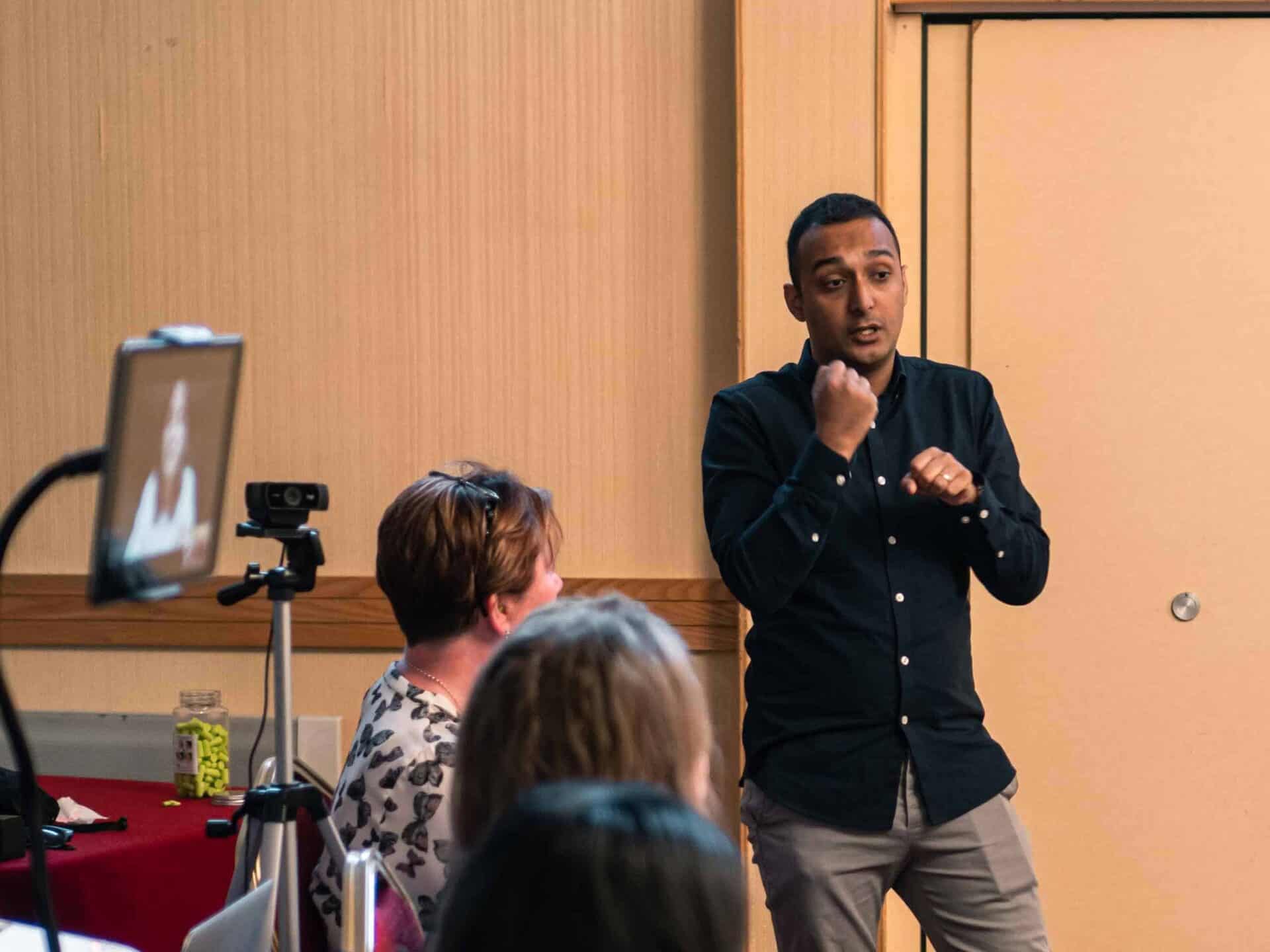
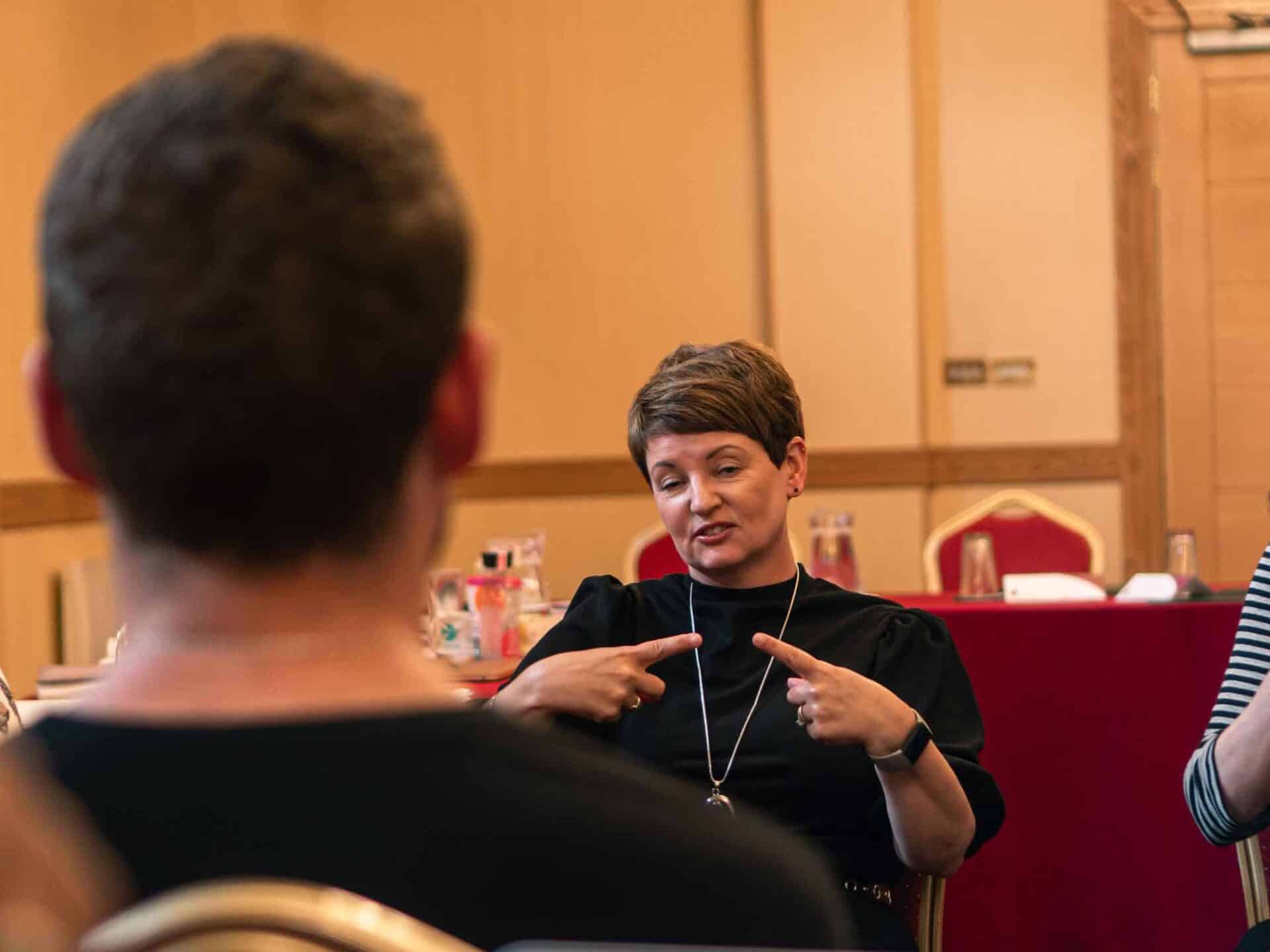
National Register of Communication Professionals Working with Deaf and Deafblind People (NRCPD)

NRCPD is the professional regulatory body for sign language interpreters and sign language translators in the UK. NRCPD registration means that interpreters and translators have agreed to follow a code of ethics and to hold themselves accountable for their work through a formal complaints process. There are two categories of registration.
Registered Sign Language Interpreter (RSLI)
Registered Sign Language Interpreters (RSLI) have completed a Level 6 qualification in British Sign Language and a Level 6 qualification in sign language interpreting.
The Level 6 qualification is mapped against the National Occupational Standards, which means RSLIs have been assessed against nationally recognised criteria.
Trainee Sign Language Interpreter (TSLI)
Trainee Sign Language Interpreters (TSLI) are undergoing training towards RSLI level. TSLIs have skills in British Sign Language and in sign language interpreting at Level 4, and are working towards the Level 6 qualifications.
This lower skill level means that TSLIs must not be booked for assignments where there is a significant risk to the parties involved, or where a high level of language and interpreting skill is required. For example, TSLIs should not be booked for:
- Mental health assessments
- Legal and court cases
- Conferences
- Child protection
Face-to-Face Interpreting
Face-to-face interpreting requires the interpreter to travel to a venue in order to carry out the interpreting service, such as a GP appointment, conference or council meeting. We provide face-to-face interpreting services across the UK and Europe.
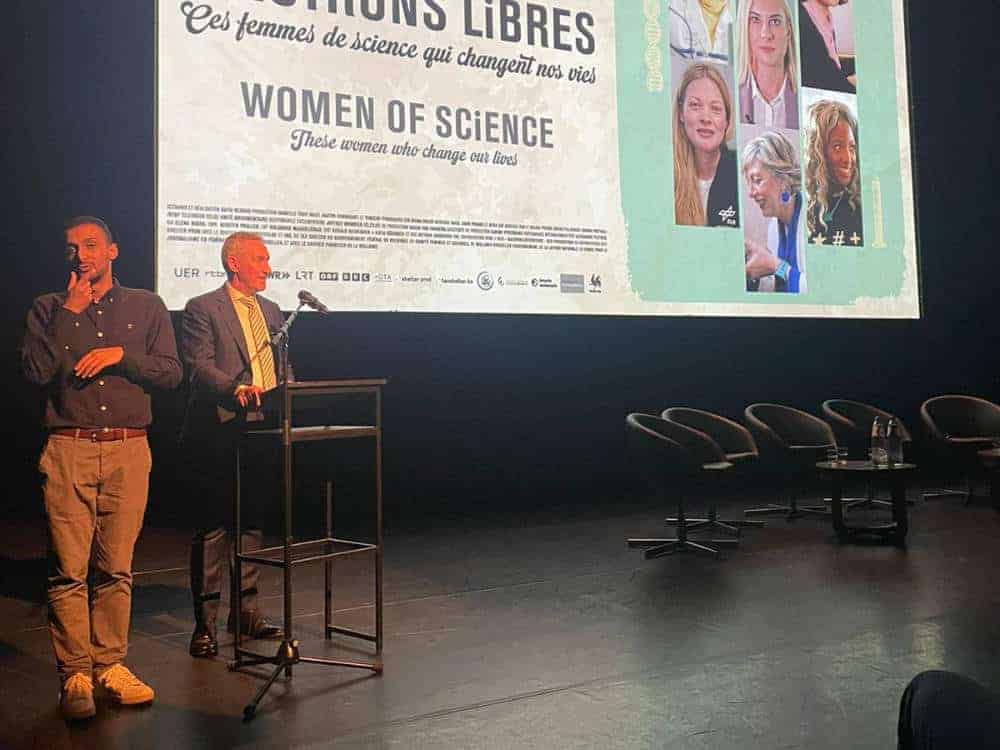
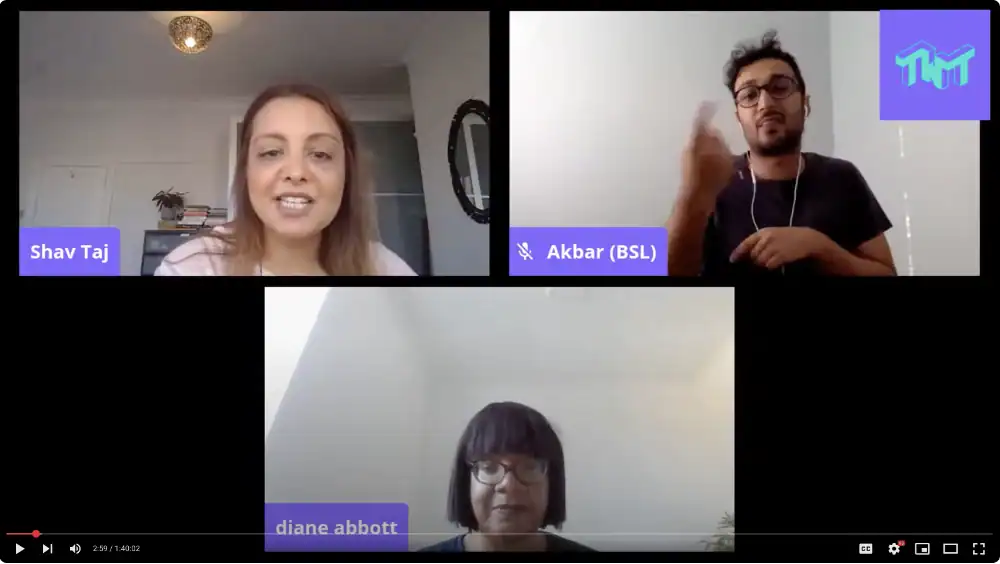
Remote Interpreting
Remote interpreting services are performed from a remote location (usually the interpreter’s home). The interpreter will connect to the meeting using an online videoconferencing platform, such as Zoom or MS Teams.
All interpreters are equipped with a green or blue screen background, a HD camera, microphone and headset and adjustable lighting to ensure a high quality of service.
We provide remote interpreting services for the whole of the UK and abroad, including for public live streams and webinars.
Areas of Expertise
BSL/English Interpreters work in a wide variety of settings and may have specialisms in certain domains. Some of the most common domains are:
- Health (GP appointments, dentist, hospital appointments)
- Employment (job interviews, staff meetings, office support)
- Performance (theatre, festivals, shows)
- Community (community forums, council services, home visits)
- Education (schools, colleges, universities)
- Legal (solicitor appointments, police dealings, court hearings)
- Conferences
- Islamic settings
- Live streams and online conferences
- Webinars
- Online meetings
- Telephone and conference calls
